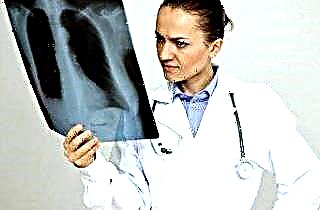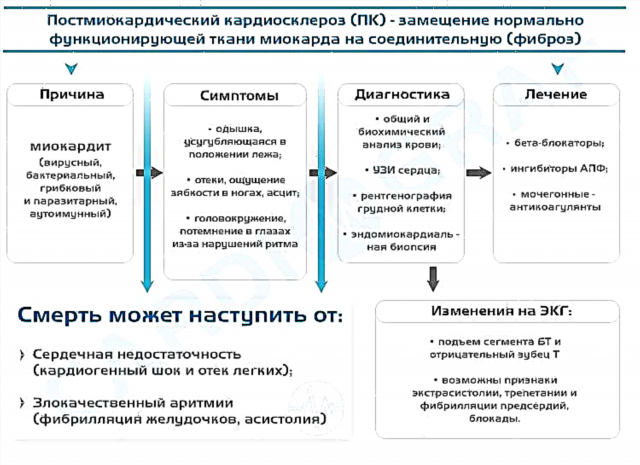Sometimes it happens that chest pain when coughing appears suddenly. In some cases, it does not arise constantly, only occasionally a person's anxiety. Of course, if the intensity of pain is strong enough, people immediately turn to a doctor. With a mild symptom, a person often does not focus on it and does not try to look for an answer to the question of why chest pain occurs when coughing. But there are just a lot of reasons. Most often, this symptom indicates the development of certain ailments in the body. The main task when it is detected is to diagnose in time a violation in the work of an organ or organ system and start adequate treatment. A burning sensation in the chest when coughing and soreness in this area are serious symptoms that should be given the utmost attention.
Causes of chest pain
 Chest pain when coughing is not normal at all. And by itself it will definitely not work. It clearly indicates that not everything is in order in the body. So, unpleasant soreness of varying degrees of intensity can appear in such cases:
Chest pain when coughing is not normal at all. And by itself it will definitely not work. It clearly indicates that not everything is in order in the body. So, unpleasant soreness of varying degrees of intensity can appear in such cases:
- If a person is sick with bronchitis, then when coughing, the chest hurts. Sometimes it is felt that it is baking in it. In some cases, the cough increases so much that it even causes a headache attack.
- Inflamed trachea. With colds, infectious diseases transmitted by airborne droplets, as well as with flu, the inflammatory process often affects the trachea. This is manifested by a debilitating cough. In addition, the person becomes painful in the chest area. As soon as adequate treatment is started, the soreness will subside and further disappear.
- Dry pleurisy. The inside of the lungs and chest is covered by a special membrane - the pleura. When it is affected by the inflammatory process, a person, coughing, feels pain in the sternum. Pneumonia often manifests itself this way.
- Shortening of the interpleural ligament. With such a problem, cough and pain in the sternum area will become constant companions of a person. In the process of short-term observation of the body, an increase in the intensity of unpleasant sensations during a conversation or during physical exertion is noted. These are indirect signs indicating this diagnosis.
- Dry pericarditis. This is a disease in which the chest hurts during inhalation, coughing and in general any movement. As a rule, such pain is quite sharp and occurs periodically. If a person also has a damaged rib frame, the pain will increase significantly even during inhalation.
- This disease is manifested by a dry or wet cough combined with pain in the chest area. Note that pain occurs with any physical activity, even the most insignificant.
 Neoplasms on the lungs. A severe debilitating cough without the slightest hint of its cessation or at least weakening can signal the appearance of a malignant neoplasm on the lungs. In this case, it is accompanied by stabbing and acute chest pain. With such a cough, breathing becomes much more difficult. Pain sensations can be localized in one place, but sometimes they affect both the hands (one or both) and the neck area. If the swelling spreads to the spine, the chest pain becomes more intense.
Neoplasms on the lungs. A severe debilitating cough without the slightest hint of its cessation or at least weakening can signal the appearance of a malignant neoplasm on the lungs. In this case, it is accompanied by stabbing and acute chest pain. With such a cough, breathing becomes much more difficult. Pain sensations can be localized in one place, but sometimes they affect both the hands (one or both) and the neck area. If the swelling spreads to the spine, the chest pain becomes more intense.- Crick. This is one of the safest reasons for health. Also, the muscles of the chest can easily get cold. Both of these conditions accompany dry cough and mild chest pain. After completing the course of treatment, the discomfort completely disappears.
Which doctor to contact
The first task when chest pain occurs during and after coughing is to determine why it appeared. After that, you can successfully eliminate the cause. To exclude serious damage to the lung tissue or diseases of the cardiovascular system, the doctor will write the referring patient a referral for a number of tests and examinations.
 So, you will need:
So, you will need:
- take x-rays of the lungs (they are usually taken in several projections);
- donate blood for analysis (general and for determination of infection - viral and bacterial);
- donate sputum for sowing;
- make a tuberculin test;
- make an electrocardiogram.
When it turns out that you have some kind of respiratory infection, tracheitis or bronchitis, you need to seek advice and treatment from a therapist. If a child gets sick with any of this, of course, go to a pediatrician. At the slightest suspicion of a chest injury, it is necessary to go for an examination to a surgeon and traumatologist. Intercostal neuralgia requires professional advice from a neurologist.
If there are pains behind the breastbone and in the area of the heart, you should, without wasting time, call an ambulance. In case of pain of minor intensity, you can go to the cardiologist yourself. However, it is undesirable to postpone the visit.
The sooner the exact cause of your ailment is found, the faster and more successfully you will get rid of it. X-ray and laboratory examination methods make it possible to clarify the alleged diagnosis in order to prescribe the most effective treatment.
When you need a doctor's help
 You need to visit a doctor immediately if:
You need to visit a doctor immediately if:
- the temperature is quite high;
- the cough gets worse every day;
- you feel very bad;
- 7 days have passed, and the cough does not subside;
- coughing up mucus mixed with blood;
- it becomes difficult to breathe;
- the face takes on a pale shade.
If you have been coughing for a long time, and the temperature remains normal, this is not a reason to refuse medical advice. On the contrary, this condition requires a special approach to treatment. Especially if there are unpleasant sensations in the chest - pain or burning.
It is imperative to find out where the ailment came from. In no case should you let it drift - you can get serious complications.
How to treat
Any appointments should be made exclusively by a doctor, since chest pain when coughing is of a different nature. Self-medication in this case is not only inappropriate, but also dangerous.
 If an acute respiratory viral infection is diagnosed, the doctor will recommend taking a course of antiviral drugs. If necessary, he can additionally prescribe antipyretic, anti-inflammatory (the most common - "Ibuprofen" and "Paracetamol") and antiallergic drugs. If it turns out that chest pain still provokes bronchitis, the doctor should take into account the nature of the cough. For example, for the treatment of dry cough, you need to take expectorants to thin thick sputum (most often prescribed "Ambroxol", "ACC", "Bromhexin" and "Lazolvan").
If an acute respiratory viral infection is diagnosed, the doctor will recommend taking a course of antiviral drugs. If necessary, he can additionally prescribe antipyretic, anti-inflammatory (the most common - "Ibuprofen" and "Paracetamol") and antiallergic drugs. If it turns out that chest pain still provokes bronchitis, the doctor should take into account the nature of the cough. For example, for the treatment of dry cough, you need to take expectorants to thin thick sputum (most often prescribed "Ambroxol", "ACC", "Bromhexin" and "Lazolvan").
Intercostal neuralgia is treated with a whole range of measures. All of them are designed to eliminate irritation of the intercostal nerves. The patient is usually prescribed non-steroidal anti-inflammatory drugs (often prescribed "Phenylbutazone", "Phenacetin", as well as "Indomethacin"). Drug treatment is complemented by vitamin therapy, acupuncture and massage.
Pathologies of the heart and blood vessels, oncology, chest injuries and pneumonia are treated purely individually, taking into account all the details of the course of a particular disease and the presence of concomitant ailments in the patient.
And finally
 If you suddenly have a cough and chest pain, do not try to drink drugs at random - maybe something will help. First of all, we establish the cause of the ailment. After the doctor has consulted you in detail and prescribed a course of treatment, you need to start taking the drugs prescribed by him.
If you suddenly have a cough and chest pain, do not try to drink drugs at random - maybe something will help. First of all, we establish the cause of the ailment. After the doctor has consulted you in detail and prescribed a course of treatment, you need to start taking the drugs prescribed by him.
Since the respiratory organs are affected by coughing, this causes significant discomfort. For the speedy elimination of unpleasant sensations, you can take not only pharmaceutical medicines, but also traditional medicine. Of course, by clarifying the list of acceptable means in your case from a doctor. Most importantly, if you have already managed to get sick, you must not ignore the symptoms and strictly follow all the doctor's recommendations.

 Neoplasms on the lungs. A severe debilitating cough without the slightest hint of its cessation or at least weakening can signal the appearance of a malignant neoplasm on the lungs. In this case, it is accompanied by stabbing and acute chest pain. With such a cough, breathing becomes much more difficult. Pain sensations can be localized in one place, but sometimes they affect both the hands (one or both) and the neck area. If the swelling spreads to the spine, the chest pain becomes more intense.
Neoplasms on the lungs. A severe debilitating cough without the slightest hint of its cessation or at least weakening can signal the appearance of a malignant neoplasm on the lungs. In this case, it is accompanied by stabbing and acute chest pain. With such a cough, breathing becomes much more difficult. Pain sensations can be localized in one place, but sometimes they affect both the hands (one or both) and the neck area. If the swelling spreads to the spine, the chest pain becomes more intense.

